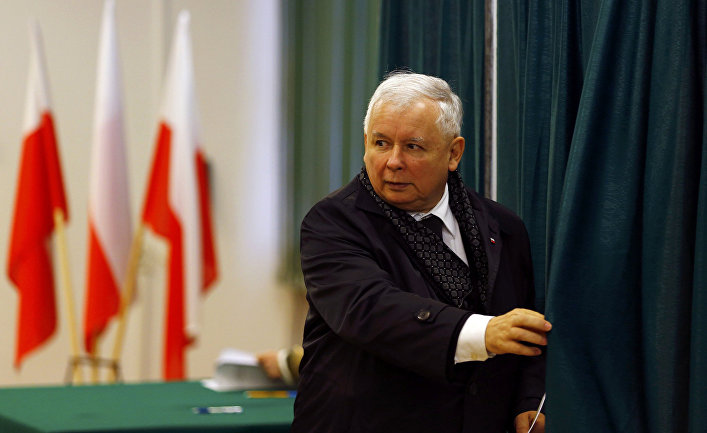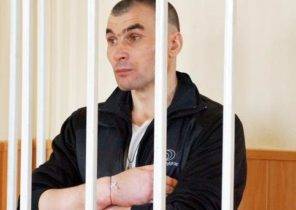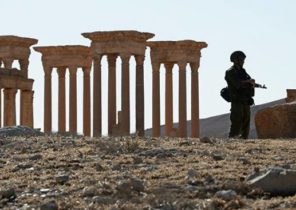
On the last leg of the historical Warsaw Royal route famous cluster structure: this includes the presidential Palace and the castle, and the old hotel “Bristol” and “Europe”. Jaroslaw Kaczynski (Jarosław Kaczyński), the powerful Chairman of the Polish government party IPR chose for conversation face to face with Federal Chancellor of Germany Angela Merkel, the hotel with the English name.
However, the choice of the venue was not a hint of Polish plans to follow the example of Britain with Brexton. Kaczynski has repeatedly spoken out against the “Polexia” so the meeting with Merkel, it were to talk more about how to carry out a “thorough reform of the EU”, which Kaczynski said the day before and had already sketched out a rough plan: the Europe of citizens of his country with great influence of national parliaments.
During her visit, Merkel did not elaborate on this topic. The Chancellor has demonstrated a willingness to talk, however, warned against repeating the fiasco that ended in the beginning of the Millennium, a constitutional Convention of the EU. Instead, it again, as it was last week at the EU summit in Malta, spoke in defense of a Europe of different speeds. In Poland it is most often perceived as a threat, because this country is not included in the Euro zone. Merkel said the invitation: “the most important thing is to always to all members was available mechanisms for closer cooperation”.
The personnel party of the modern type
She said it is still a few hours before meeting with Kaczynski, though informal conversation with the leader of PIS was considered the most important item on the agenda of her visit. However, for reasons of Protocol, the Chancellor has been a long conversation with the Prime Minister Beate Szydlo (Beata Szydło) and President Andrzej Duda (Andrzej Duda). Both of these are nominally the most important politicians in Poland are members of IPRs, which is a cadre party of the modern type, but in fact a decisive voice in it is just one person — Kaczynski. But not to meet with them Merkel could not.
The disadvantages of this intricate structure of power Merkel has demonstrated Kaczynski downright perfect. The Chancellor used his speech along with Szydlo before the representatives of mass media to business-like and elegant to teach the Polish government. Being “young”, she is always enthusiastically looking from East Germany to Poland, said the Chancellor and said: “Solidarity has shaped my life.” The anti-Communist democratic movement in Poland in the 80-ies paved the way for peaceful revolutions of 1989 and the reunification of Germany. Chancellor deftly threw the bridge then to the issue of current legal investigations of the EU in relation to the government IPRs. According to her, the more important it is to guarantee the independence of justice and media.
Kaczynski couldn’t argue it, at least not immediately and not in front of cameras. Critical of the government Gazeta Wyborcza immediately pointed this out in his online edition: Merkel’s visit shows, they say, “all the weakness of the structure of power in Warsaw.” So sharp and unexpected recognition this Tuesday in Warsaw could sound so well: it’s probably only a matter of time when Kaczynski will take over the Board Szydlo.
To top it all off the day before Kaczynski did not allow such “attacks” in his address, which he heard now from Merkel. Unaffordable, warned the leader of PIS, is constantly to attack Poland, and at the same time to hope for good relations. Does this mean the end of good German-Polish relations? Whoever followed the speech, Merkel and Szydlo, could be a different experience. The Chancellor has listed many opportunities for cooperation, while Szydlo in most cases, approvingly nodded his head and never said.
Joint interests in security policy
In security policy there are “many common points of view,” Merkel said and pointed to the crisis in Ukraine and relations with Russia. Unlikely coincidence that the Minister of defence of Germany Ursula von der Leyen (Ursula von der Leyen) almost at the same time it has visited Lithuania, where the German tank unit should strengthen the Eastern flank of NATO — not least at the request of Poland, for which Szydlo expressed deep gratitude.
Almost in passing Merkel has pacified the dispute over the German-Russian Baltic gas pipeline “Nord stream”, the construction of which Poland is not liked from the beginning. The Chancellor has departed from its position that it is a purely private economic project. Instead, according to her, the problem should now be discussed in the bilateral working group.
On global issues, Merkel and Szydlo was expressed, however, only with the caveat that it would be possible to call the reservation because of Kaczynski, as a conversation face to face with the leader of the IPR was scheduled for the evening. Close to the government, usually well-informed sources it became known at first only that Kaczynski wants to give Merkel a far-reaching military cooperation plan. This includes, they say, also the idea of creating a European nuclear shield.
About Kaczynski voted yesterday in an interview with the Frankfurter Allgemeine. “Nuclear power needs to be on a par with Russia.” The fact that Merkel could agree with such plans, it was incredible. Not yet leaked any information about the reaction of Merkel’s main concern IPRs. Kaczynski blames supposedly “too loyal to the government” the German media is that they “unfairly and harshly” criticized his own party. The Chancellor supposedly also is responsible for this. Full responsibility it carries for a meeting in Warsaw with representatives of the opposition.






